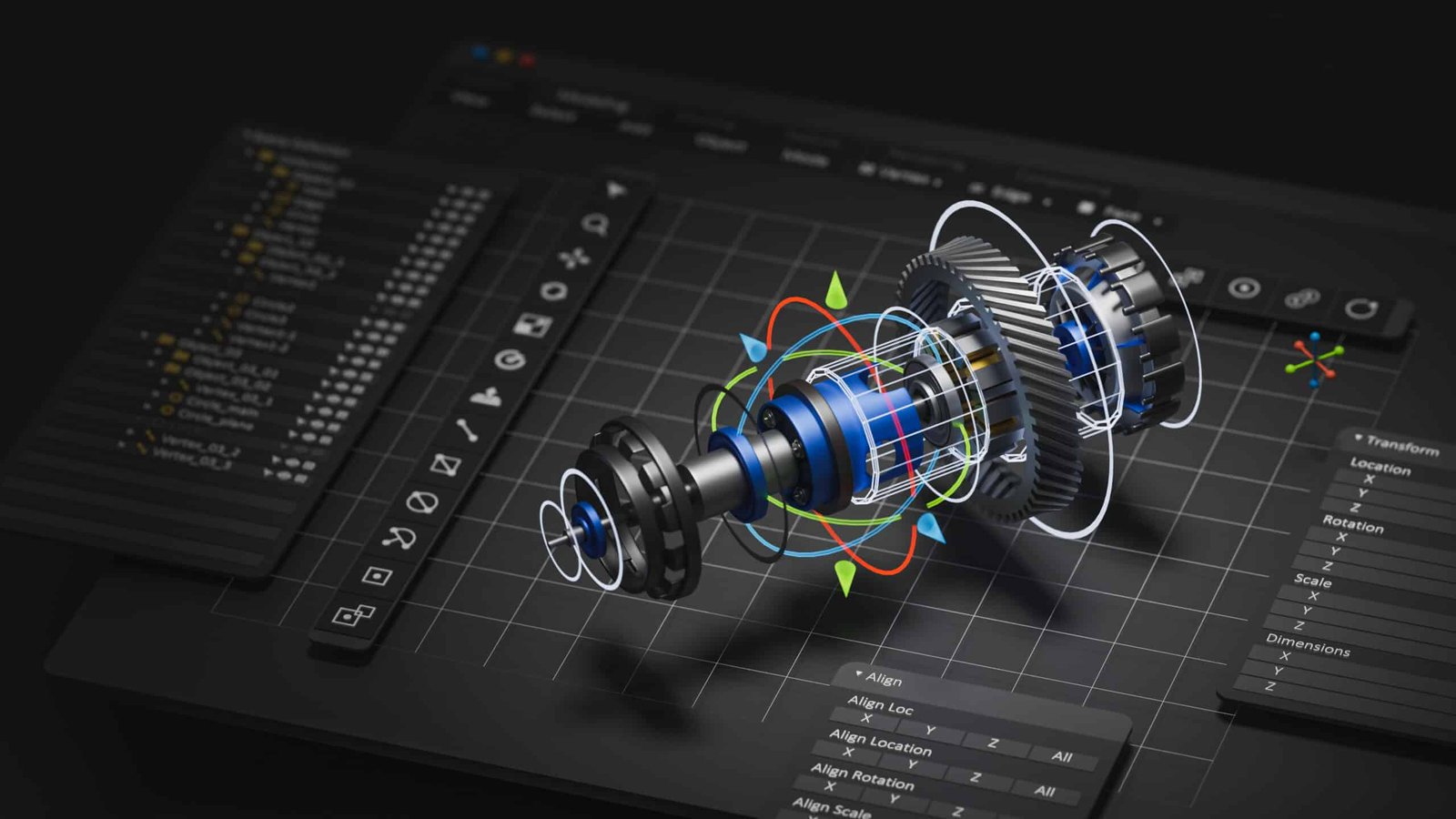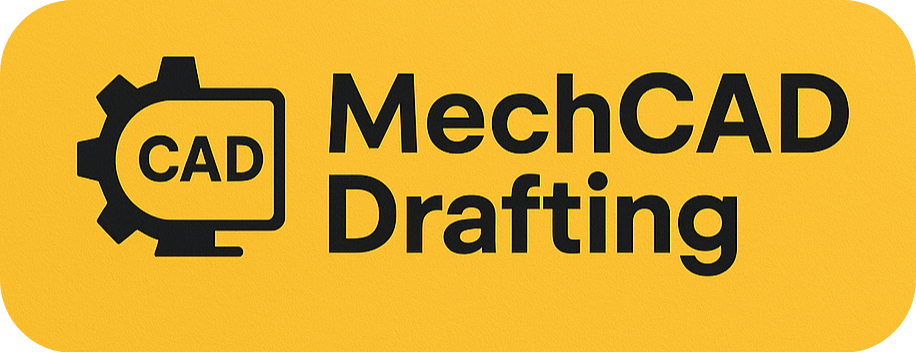Mechanical Design and Engineering Services for Industrial Applications

industrial sectors—such as manufacturing, energy production, food processing, mining, and materials handling—rely on high-performing mechanical systems to maintain productivity and competitiveness. The requirement for dependable, precisely engineered solutions is more critical than ever, and this underscores the importance of mechanical design and engineering services for industrial applications.
In this comprehensive blog, we explore the full range of services, methodologies, tools, benefits, and project examples that illustrate how expert mechanical design and engineering services for industrial applications are essential for driving performance, reliability, and innovation.
What Are Mechanical Design and Engineering Services for Industrial Applications?
These services provide the complete suite of mechanical engineering solutions tailored to industrial environments. They include:
- System design and optimization
- Structural, thermal, and fluid dynamics analysis
- Equipment and machinery development
- Prototyping and pilot testing
- Manufacturing support and integration
- Maintenance and lifecycle management
These services aren’t generic—they’re strategically optimized for industrial settings, where performance, durability, safety, and cost-efficiency are non-negotiable. Mechanical design and engineering services for industrial applications require a blend of deep technical knowledge and practical experience.
Why Industrial Applications Require Specialized Mechanical Design
Off-the-shelf equipment often fails to meet the demands of heavy-duty use. Industries need solutions that are engineered to handle:
- High loads and stresses
- Extreme temperatures, chemicals, or pressure
- Continuous operation
- Safety standards and regulatory compliance
- Integration with existing infrastructure
Mechanical design and engineering services for industrial applications deliver customized, robust solutions that guarantee operational integrity under these challenging environments.
Core Components of Industrial Mechanical Engineering Services
To address complex requirements, mechanical design and engineering services for industrial applications typically encompass:
1. Concept Development and Feasibility
- Gathering functional requirements and operational constraints
- Brainstorming design approaches and use-case scenarios
- Estimating performance, cost, and manufacturability
2. CAD Modeling and Engineering Drawings
Using tools such as SolidWorks, CATIA, or Creo, engineers develop intricate 3D models and technical drawings that meet precise dimensional needs and interface specifications.
3. Simulation and Analysis
Mechanical design and engineering services for industrial applications rely heavily on simulation tools:
- Finite Element Analysis (FEA): structural strength and vibration
- Computational Fluid Dynamics (CFD): flow and thermodynamics
- Multibody simulation: for moving machinery
These tools help predict and correct design weaknesses before prototyping.
4. Prototype Fabrication and Pilot Testing
Rapid prototyping or scaled-down models allow real-world testing of critical industrial components. Testing may include load cycling, thermal endurance, or corrosion resistance.
5. Design Validation
Functional tests, regulatory compliance checks, and performance audits are undertaken to confirm the prototype aligns with industrial standards. Any necessary revisions are executed at this stage.
6. Manufacturing Support
Engineers generate production-ready documentation—assembly instructions, BOMs, CNC toolpaths, quality control plans—and work with suppliers to ensure smooth fabrication using industrial processes.
7. Installation, Commissioning, and Lifecycle Management
Mechanical design and engineering services for industrial applications also include onsite support during installation and commissioning, alongside ongoing maintenance consulting and reliability optimization plans.
Industries Benefiting from Industrial Mechanical Design
1. Manufacturing & Automation
Precision conveyor systems, robotic workcells, pick-and-place machinery, and custom tooling rely on mechanical design and engineering services for industrial applications to ensure speed, accuracy, and uptime.
2. Energy & Power
Power plants, oil and gas facilities, renewable energy installations, and pumping systems need custom-engineered mechanical assemblies designed for efficiency, safety, and regulatory compliance.
3. Material Handling & Logistics
Cranes, stackers, bulk material feeders, and storage equipment require structural stability, load management, and wear resistance—all supported by industrial-grade mechanical engineering.
4. Food & Beverage Processing
Hygienic design, corrosion resistance, clean-in-place mechanisms, and precise controls are central to food and beverage equipment engineering, and mechanical design and engineering services for industrial applications are critical to meet these demands.
5. Mining, Cement & Heavy Industry
Heavy-duty crushers, screens, chutes, and material separation systems need to endure abrasive environments, high impact, and continuous operation. These services deliver solutions that stand up to harsh conditions.
Benefits of Professional Mechanical Design and Engineering Services
Increased Equipment Reliability
Purpose-built mechanical systems reduce failure rates and cut maintenance frequency.
Optimized Performance
Models tuned for load, fluid flow, thermal conditions, and fatigue ensure peak efficiency.
Cost Savings
Early-stage simulation and prototyping reduce costly rework, scrap, and downtime.
Compliance and Safety
Engineered solutions adhere to industry norms like ISO, ANSI, ASME, and local regulatory standards.
Scalability and Sustainability
Modular and upgradable design, with recyclable materials and low-energy systems, support long-term planning.
Real-World Example: Industrial Conveyor Optimization
Client Challenge
A beverage plant needed to upgrade its bottling line conveyors to handle increased volume while minimizing jams and sanitation issues.
Mechanical Design and Engineering Services for Industrial Applications were engaged and delivered:
- New conveyor geometry optimized in CAD
- CFD simulations to monitor product flow and sanitary washdown conditions
- Prototype system tested onsite during trial runs
- Final design integrated with existing mix and packing equipment, with maintenance-friendly access and controls
Results
This retrofit improved throughput by 35%, eliminated product jams, and halved cleaning time between runs.
Using Advanced Technology in Industrial Design
These mechanical design and engineering services use advanced technologies, including:
- Additive manufacturing for complex parts and lightweight design
- Digital twins for real-time monitoring and predictive analytics
- IoT sensors integrated into mechanical systems for predictive maintenance
- Eco-design using energy-efficient motor systems and recycled materials
How to Choose the Right Engineering Partner
To get the most out of mechanical design and engineering services for industrial applications, consider:
- Proven experience in industrial environments
- Demonstrated competency in CAD, FEA, CFD, and prototyping
- Established ISO, ASME, or industry-specific certification
- Ability to support from design through commissioning
- Strong communication and change management processes
Request detailed proposals, including references, timelines, and design milestones, to ensure a strategic and measurable partnership.
Future of Industrial Mechanical Engineering
Emerging trends include:
- Generative design for design innovation and optimization
- AI-assisted failure detection and design improvement
- Digital twins for lifecycle insights
- Smart mechanical systems with embedded diagnostics
- Sustainable component design for carbon footprint reduction
Mechanical design and engineering services for industrial applications will continue evolving—driven by technology, automation, and sustainability.
Conclusion
Mastering the mechanical design and engineering services for industrial applications is vital for companies that want thriving, efficient, and future-ready operations. From concept to commissioning and beyond, these services offer unmatched benefits: reliability, cost control, regulatory compliance, and growth readiness.
By partnering with expert industrial mechanical engineering services, you position your business for long-term success in an increasingly competitive, high-performance industrial world.
